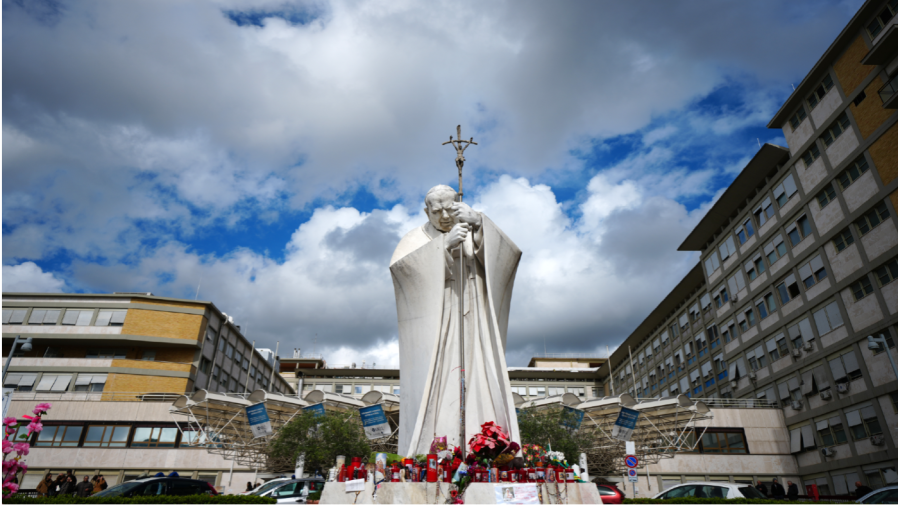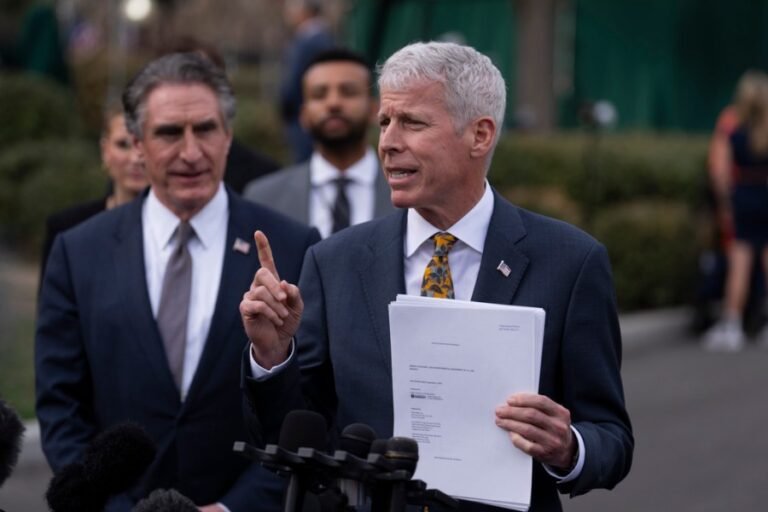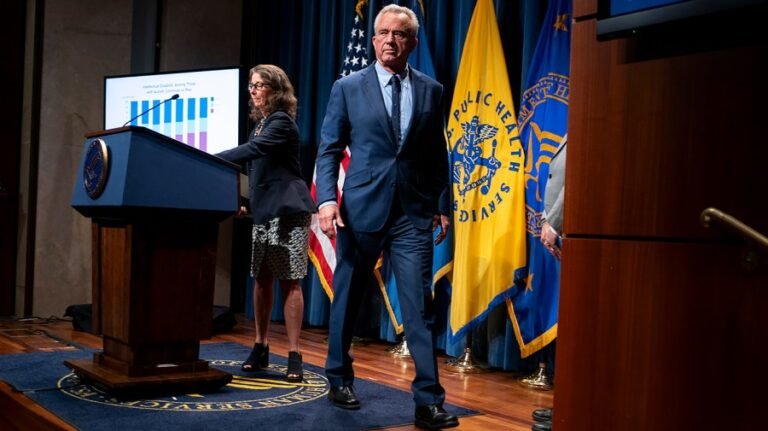
At first glance, the answer to the question of who speaks for the Catholic Church in the United States seems obvious: the Pope. When it comes to divinely revealed dogmas concerning faith and morals, the word of the Pope is infallible.
But apart from the inner counsels of the church, the Pope is an important voice. With a 78 percent favorable rating among American Catholics — a number most politicians would envy — the Pope’s public declarations on political issues also carry weight.
Yet the question of who speaks for American Catholics has become a battle for control of the microphone. Mathew Schmalz, a religious studies professor at the College of the Holy Cross, told me in an interview that the Catholic Church is “highly polarized,” thus, intensifying the struggle over who speaks for it.
In a separate interview with me, Rep. Mary Gay Scanlon (D-Pa.) described how the political polarization among Catholics deepened in 2021, when the U.S. Catholic bishops “pitched their theological tent with the Republicans. And they used it to attack Joe Biden on the abortion issue.”
Since then, the chasm has only widened. Referring to President Trump’s policy of deporting millions of immigrants, Pope Francis bluntly told the U.S. Catholic bishops: “The true common good is promoted when society and government, with creativity and strict respect for the rights of all … welcomes, protects, promotes and integrates the most fragile, unprotected and vulnerable.”
Vice President JD Vance, a Catholic convert, took issue with the Pope, citing a centuries-old Catholic teaching known as “ordo amoris,” meaning “order of love.” In an interview with Fox News, Vance said: “You love your family, and then you love your neighbor, and then you love your community, and then you love your fellow citizens in your own country, and then after that, you can focus and prioritize the rest of the world.”
Pope Francis immediately clapped back: “Christian love is not a concentric expansion of interests that little by little extend to other persons and groups. The true ordo amoris that must be promoted is that we discover by meditating constantly on the parable of the Good Samaritan, that is by meditating on the love that builds a fraternity open to all, without exception.”
The cacophony of Catholic voices either in support of or opposition to Francis or Trump are numerous. Catholics for Catholics is a pro-Trump organization that promises to restore the true Catholic faith to the public square. Meanwhile, Catholics for the Common Good generally supports Democrats and advocates for social justice and equity issues.
When asked who speaks for the American Catholic Church, Steven P. Millies, director of the Bernardin Center and professor of Public Theology at Catholic Theological Union, told me: “Well, it’s not JD Vance. It should be Pope Francis, but unfortunately, that doesn’t seem to be the case either.”
According to Millies, the title of spokesperson is “up for grabs.” And a contest for the microphone has been long in the making. An obvious contender should be the U.S. Conference of Catholic Bishops. Shortly after Trump took office this year, Archbishop Timothy Broglio, president of the conference, called Trump’s immigration policies “deeply troubling,” saying they will have “negative consequences, many of which will harm the most vulnerable among us.”
But Broglio speaks for a divided conference. Archbishop Joseph Naumann of Kansas City, Kansas, writes: “Allowing violent gangs, individuals with serious criminal histories, dealers of lethal illegal drugs, human traffickers and those who pose threats to our national security to enter our country and harm U.S. citizens is a serious dereliction of duty by our elected leaders. I commend President Trump and those in his administration for addressing this serious, national threat.”
Cardinal Robert McElroy, the newly installed Archbishop of Washington, D.C., decries a war of “fear and terror” being waged on undocumented immigrants. At his March 11, installation, McElroy lamented the “divisions of race, gender, ideology and nationality” where “the poor and the migrant are daily dispossessed, and the dignity of the unborn is denied.”
Cardinal McElroy is poised to be a leading Catholic spokesperson. As the only political scientist ever to lead an archdiocese, he is, as Steven Millies told me, “made for the job.”
In an interview with me, Mathew Schmaltz described McElroy’s mandate is to be a “prophetic voice” for the Catholic Church, especially on matters of social justice.
Still, the battle over who speaks for the U.S. Catholic Church continues. For example, Bishop Robert Barron has 1 million YouTube subscribers. In 2022, his Word on Fire ministry raised $11.4 million. Barron aligns himself with Trump and Vance, calling Vance’s citation of the ordo amoris “refreshing.”
Another competitor is the Eternal Word Television Network. Its 11 networks broadcast in multiple languages 24 hours a day, seven days a week to more than 435 million television households in more than 160 countries. In 2022, the network raised $89.5 million.
During the Francis papacy, EWTN became a major voice of dissent. Raymond Arroyo’s EWTN program, “The World Over” became a focal point for papal criticism. In 2021, Francis criticized media attacks on his pontificate as “the work of the devil,” a comment many thought directed at EWTN.
As 88-year-old Pope Francis recovers from pneumonia, and Catholics wrestle with the legacy of this dynamic papacy, the battle for the Catholic microphone continues. Political polarization, which has touched nearly every department of life, including matters of faith, shows no sign of disappearing.
And as Catholics choose sides, their ears are often attuned to those who reflect their views while shutting out the voices of others whom they frequently demean as heretics.
John Kenneth White is a professor emeritus at The Catholic University of America. His latest book is titled “Grand Old Unraveling: The Republican Party, Donald Trump, and the Rise of Authoritarianism.”


